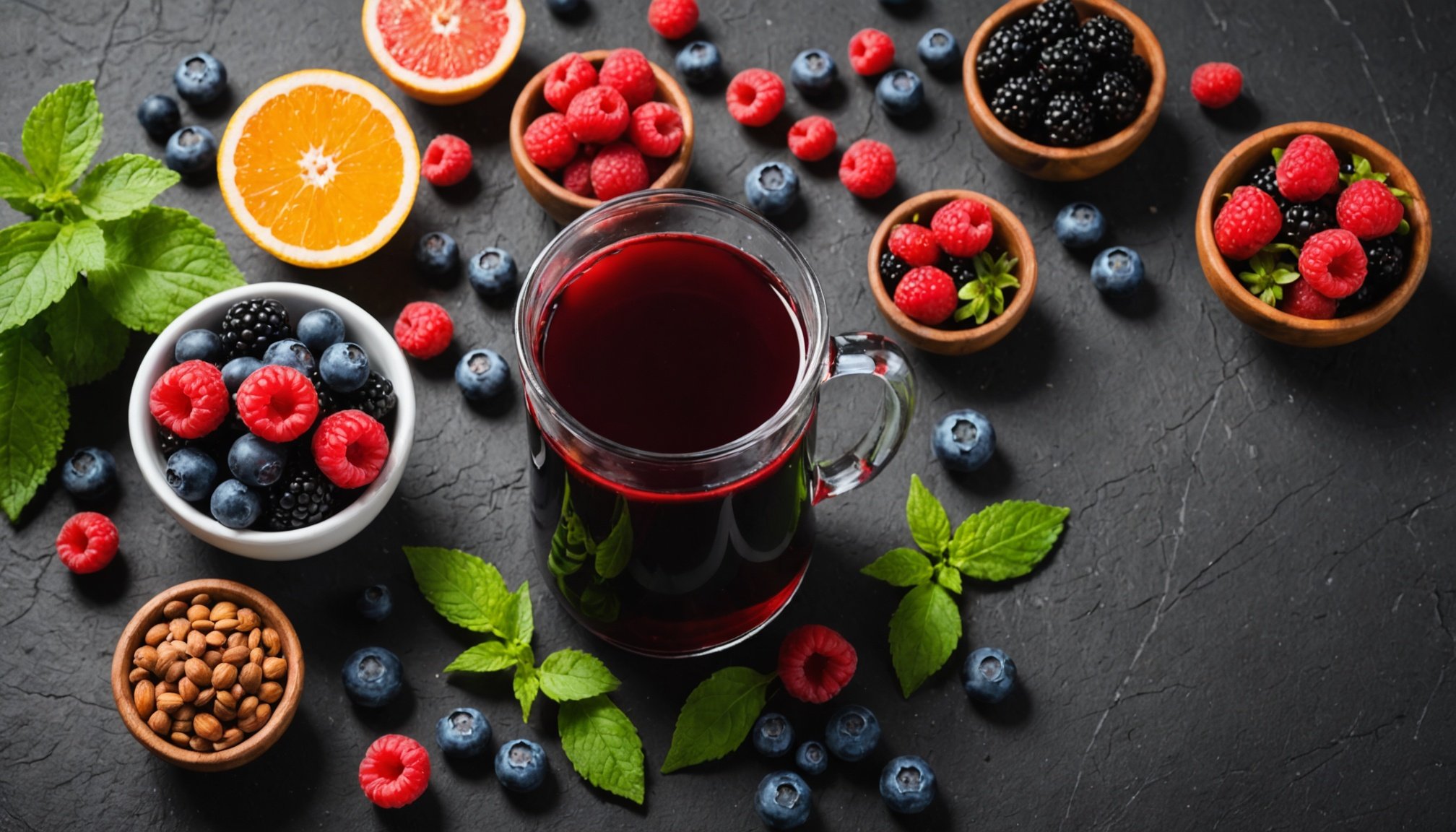Unlocking the Power of Antioxidants: Boosting Post-Workout Recovery After Intense Exercise
When you push your body to its limits through intense exercise, recovery is just as crucial as the workout itself. One of the key components in facilitating this recovery process is the use of antioxidants. In this article, we will delve into the world of antioxidants, exploring how they can help you bounce back faster, reduce muscle soreness, and enhance your overall health and performance.
Understanding Antioxidants and Their Role in Recovery
Antioxidants are substances that can prevent or slow damage to cells caused by free radicals, which are unstable molecules that the body produces as a reaction to environmental and other pressures. During intense exercise, the body generates more free radicals, leading to oxidative stress. This stress can damage muscle cells, prolong recovery times, and even affect athletic performance.
In parallel : Resilient training tactics for athletes: navigating workouts through stressful periods
How Antioxidants Help
Antioxidants neutralize free radicals, thereby reducing oxidative stress and protecting cells from damage. Here are some ways antioxidants support post-workout recovery:
- Reduce Muscle Soreness: Antioxidants, such as those found in berries and tart cherries, help reduce inflammation and muscle soreness (DOMS) that often follow intense workouts[3][4].
- Enhance Cellular Repair: By protecting cells from oxidative damage, antioxidants aid in the repair and rebuilding of muscle tissue, which is essential for muscle recovery and growth[1][3].
- Support Energy Production: Antioxidants like coenzyme Q10 and NAD+ precursors (such as NMN) help in maintaining cellular energy production, which is vital for muscle function and recovery[1].
Top Anti-Inflammatory Foods Rich in Antioxidants
Incorporating anti-inflammatory foods rich in antioxidants into your diet can significantly boost your recovery. Here are some of the top foods you should consider:
Also to read : Elevate your game: how altitude training boosts endurance athletes” vo2 max performance
1. Black Turmeric
Black turmeric, though less known than its golden counterpart, is packed with powerful curcuminoids that have a potent anti-inflammatory effect. It helps reduce muscle soreness and joint discomfort, making it an excellent addition to your post-workout routine[3].
2. Berries
Berries such as blueberries, strawberries, and blackberries are small but mighty antioxidant bombs. They contain anthocyanins, which help neutralize free radicals and reduce oxidative stress, protecting cells from damage and inflammation[3][5].
3. Fatty Fish
Fish like salmon, mackerel, and sardines are high in omega-3 fatty acids, which are known for their anti-inflammatory properties. Omega-3s reduce the production of inflammatory molecules, helping to alleviate post-workout soreness and improve joint health[3].
4. Tart Cherries
Tart cherries and tart cherry juice have been shown to reduce muscle soreness and improve recovery times. They are loaded with anthocyanins, which help decrease inflammation and oxidative stress[3][4].
Supplements: Additional Support for Recovery
While a balanced diet is essential, certain supplements can provide additional support for post-workout recovery.
1. Ashwagandha
Ashwagandha, an adaptogenic herb, helps the body manage stress. It reduces cortisol levels, which can interfere with muscle recovery, and aids in faster muscle recovery after intense workouts[1].
2. Curcumin
Curcumin, the active compound in turmeric, is a potent antioxidant with strong anti-inflammatory effects. It reduces exercise-induced muscle soreness, supports joint health, and combats oxidative stress[1].
3. Magnesium
Magnesium is an essential mineral for muscle relaxation and energy production. It helps relax muscles, reduces muscle cramps and spasms, and supports ATP production, which is crucial for energy during physical activity[1].
4. NMN (Nicotinamide Mononucleotide)
NMN supports cellular repair and recovery by aiding in NAD+ production, which is essential for cellular energy metabolism. It improves aerobic capacity, reduces age-related decline in performance, and enhances recovery after exercise[1].
Practical Tips for Incorporating Antioxidants into Your Workout Nutrition
Here are some practical tips to help you integrate antioxidants into your workout nutrition plan:
Pre-Workout Nutrition
- Hydrate: Proper hydration is essential before, during, and after your workout. Include antioxidant-rich beverages like tart cherry juice or pomegranate juice in your pre-workout routine[4].
Post-Workout Nutrition
- Protein and Carbohydrates: Aim for 20-30 grams of high-quality protein and replenish your glycogen stores with carbohydrates within 30-60 minutes after your workout. This helps in muscle repair and energy replenishment[4].
- Anti-Inflammatory Foods: Include anti-inflammatory foods like berries, fatty fish, and black turmeric in your post-workout meal to help reduce muscle soreness and inflammation[3][4].
Supplements
- Timing: Consider taking supplements like ashwagandha, curcumin, magnesium, and NMN post-workout to maximize their benefits in aiding recovery[1].
Table: Comparing Key Antioxidant-Rich Foods and Supplements
| Food/Supplement | Key Antioxidants | Benefits | How to Use |
|---|---|---|---|
| Black Turmeric | Curcuminoids | Reduces muscle soreness and joint discomfort | Add to smoothies or take in capsule form[3] |
| Berries | Anthocyanins | Neutralizes free radicals, reduces oxidative stress | Enjoy fresh, add to smoothies, or sprinkle on yogurt[3][5] |
| Fatty Fish | Omega-3 fatty acids | Reduces inflammation, improves joint health | Include in diet at least twice a week[3] |
| Tart Cherries | Anthocyanins | Reduces muscle soreness, improves recovery times | Drink tart cherry juice or add frozen cherries to smoothies[3][4] |
| Ashwagandha | Withanolides | Reduces cortisol levels, aids in muscle recovery | Take post-workout to support muscle recovery[1] |
| Curcumin | Curcuminoids | Reduces muscle soreness, supports joint health, combats oxidative stress | Take post-workout to support recovery[1] |
| Magnesium | Magnesium ions | Supports muscle relaxation, energy production, and reduces inflammation | Take post-workout to support muscle function and recovery[1] |
| NMN | Nicotinamide Mononucleotide | Improves aerobic capacity, reduces age-related decline in performance | Take post-workout to support cellular energy metabolism[1] |
Quotes from Experts
- “Incorporating anti-inflammatory foods into your diet can help you manage inflammation, allowing your body to repair itself more efficiently. This translates to faster recovery times and better overall performance,” says Roxana Ehsani, RD[4].
- “Antioxidants like curcumin and ashwagandha are not just nutritious supplements; they’re powerful allies that can help you manage stress and inflammation, aiding in faster muscle recovery,” notes a report from Phytoceutics[1].
Unlocking the power of antioxidants is a crucial step in enhancing your post-workout recovery. By understanding how antioxidants work, incorporating anti-inflammatory foods into your diet, and using targeted supplements, you can significantly improve your muscle recovery, reduce muscle soreness, and boost your overall health and athletic performance.
Final Tips
- Balanced Diet: Ensure you have a balanced diet rich in antioxidants, protein, carbohydrates, and healthy fats to support muscle recovery and overall health.
- Hydration: Proper hydration is essential for muscle function and recovery.
- Consistency: Consistency in your workout and nutrition plan is key to seeing long-term benefits.
By following these tips and integrating antioxidants into your workout routine, you can optimize your recovery, enhance your performance, and maintain your overall health and fitness.











